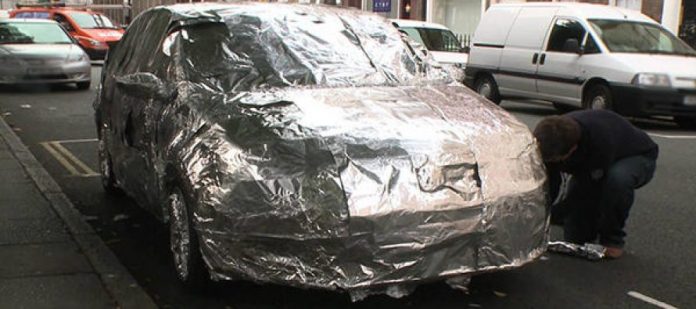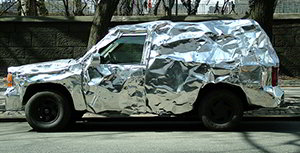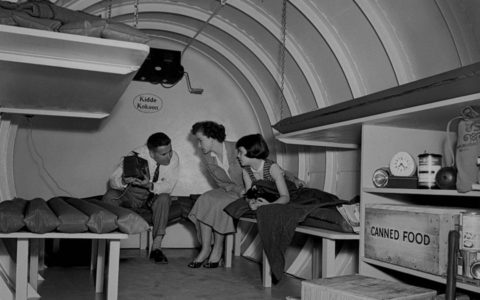
This article only takes into account the effects of a nuclear EMP and not a solar flare. A solar flare will impact just about grid-connected electronics.
1. Will a microwave work as a Faraday cage?
No. If an EMP strikes, you will notice that all the electronic devices that you stored in a microwave oven will be rendered useless. The microwave is not a Faraday cage.
2. Will a refrigerator work as a Faraday cage?
No, most refrigerators do not work as a Faraday cage. I tested mine, and it’s definitely not a Faraday cage.
3. If I keep a backup mobile phone in my Faraday cage, will it work when I need it?
Yes, your phone will work perfectly. However, it will be rendered almost useless because the network will not be functional. The only form of communication after an EMP will be the radio.
4. Do I need to store batteries in a Faraday cage?
No. They will continue to work regardless and will just take up space in your Faraday cage.
5. Do Faraday cages need grounding?
No.
6. Do I need to keep my solar panels in a Faraday cage?
No. Your solar panel inverter is the only component of the device you need to think about. Do not think about your solar panels; they are going to be okay. Buying an extra inverter is best, and holding it in your Faraday cage so you can remove the useless one after the EMP.
7. If I wrap electronic devices in heavy-duty aluminum foil, will that work?
No. But if you wrap the cardboard box in which you bought them in heavy-duty aluminum foil, this would be an effective Faraday cage.
8. Will flashlights continue to function after an EMP Strike?
Some flashlights will continue to function, and some will burn out. It all depends on the power and distance from the blast.
9. Is a shipping container a Faraday cage?
Yes, but just remember that you can’t just put the electronic devices directly in contact with the metal. Some people board the interior of the container with wooden panels.
10. Can I use this shipping container as a “Faraday garage” for my car?
Yes, you can definitely do that. Most cars fit in a standard shipping container, but just to make sure, go ahead and take the measurements before buying a shipping container.
11. If you turn off your devices, will they be EMP-proof?
No.
12. Are airplanes Faraday cages?
No. Planes operate on the basic principles of lift and thrust, so they will become more or less gliders. They will be very difficult to control and most of them will fall from the sky and crash.
13. How do I test an object to see if it will work as a Faraday cage?
You can test any device that you think might work as a Faraday cage with a radio. Simply turn the radio on and place it inside your device. When a signal is still being transmitted by the radio, then it is not a Faraday cage. You can use a mobile phone if you don’t have a radio, but the tests won’t be 100% accurate in the sense that if your mobile phone still rings, it’s certainly not a Faraday cage, but if it doesn’t, you can’t be sure. To be 100% sure you have a Faraday cage, you need to test it with a radio.
14. Can you EMP-proof a car?
You could build a Faraday cage, but that would mean either you’ll never use your car or you’ll need to purchase a new one. I’ve seen some pictures online of people wrapping them in aluminum, but as I said earlier, it makes no sense.
Instead of making your car EMP-proof, I think you’d better buy an old, cheap car that has a much less vulnerable electric system. Here are the top 6 EMP-proof vehicles.
15. Will a galvanized steel trash can make a good Faraday cage?
Yes, but they can have to close perfectly, and you will have to line the walls with cardboard.
Other self-sufficiency and preparedness solutions recommended for you:
The vital self-sufficiency lessons our great grand-fathers left us
Knowledge to survive any medical crisis situation
Liberal’s hidden agenda: more than just your guns
Build yourself the only unlimited water source you’ll ever need
4 Important Forgotten Skills used by our Ancestors that can help you in any crisis
Secure your privacy in just 10 simple steps





















